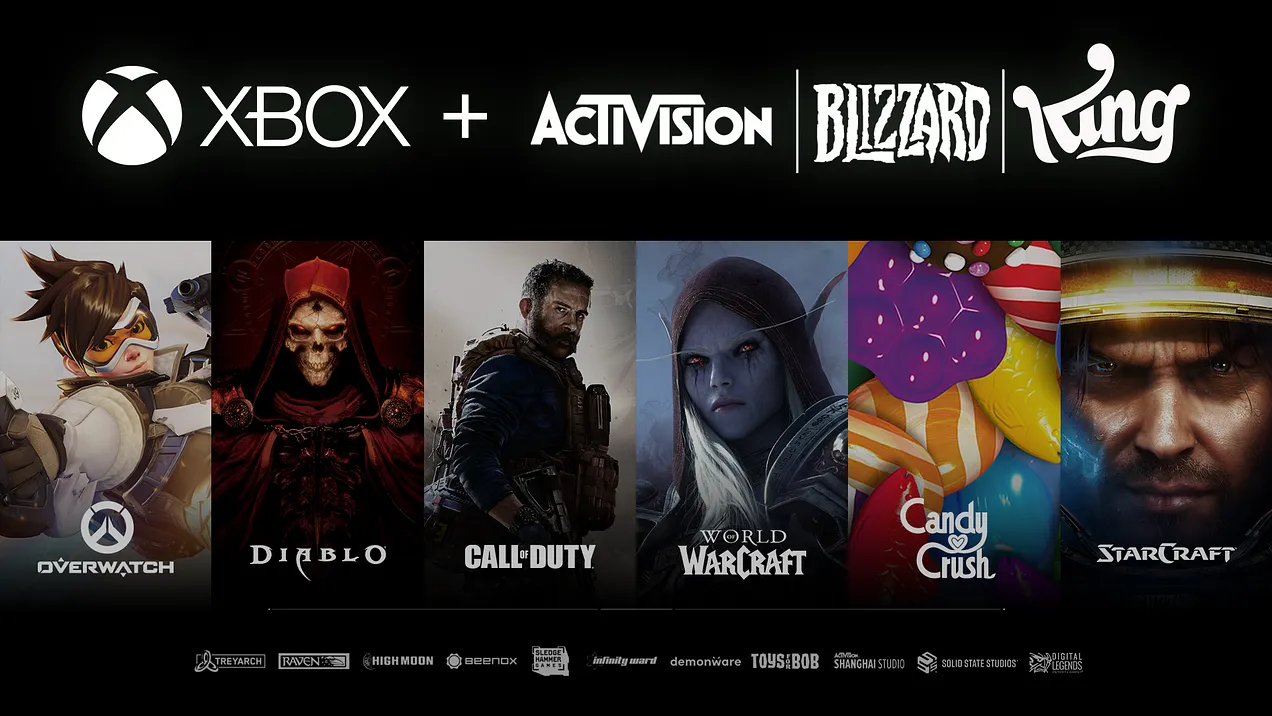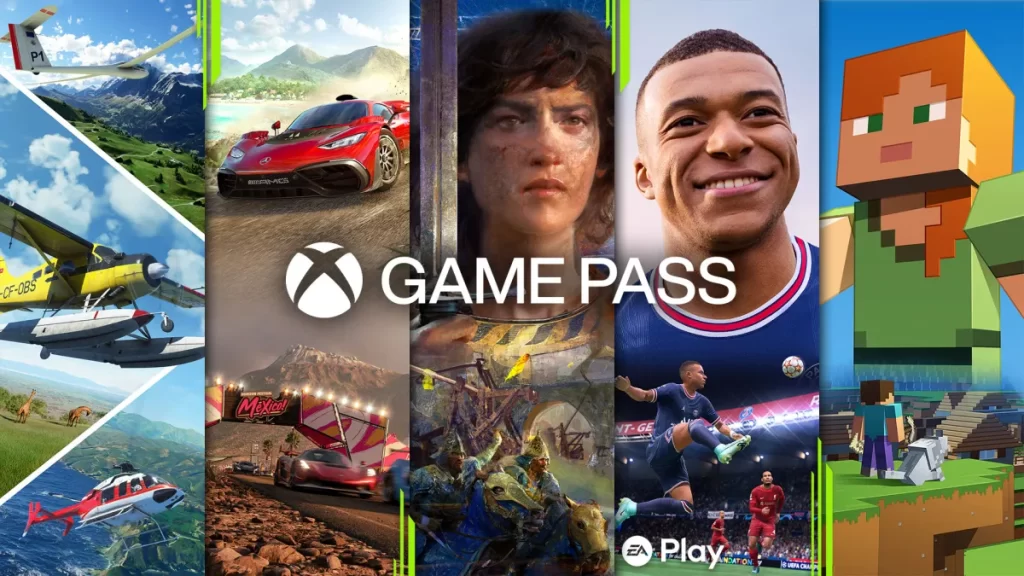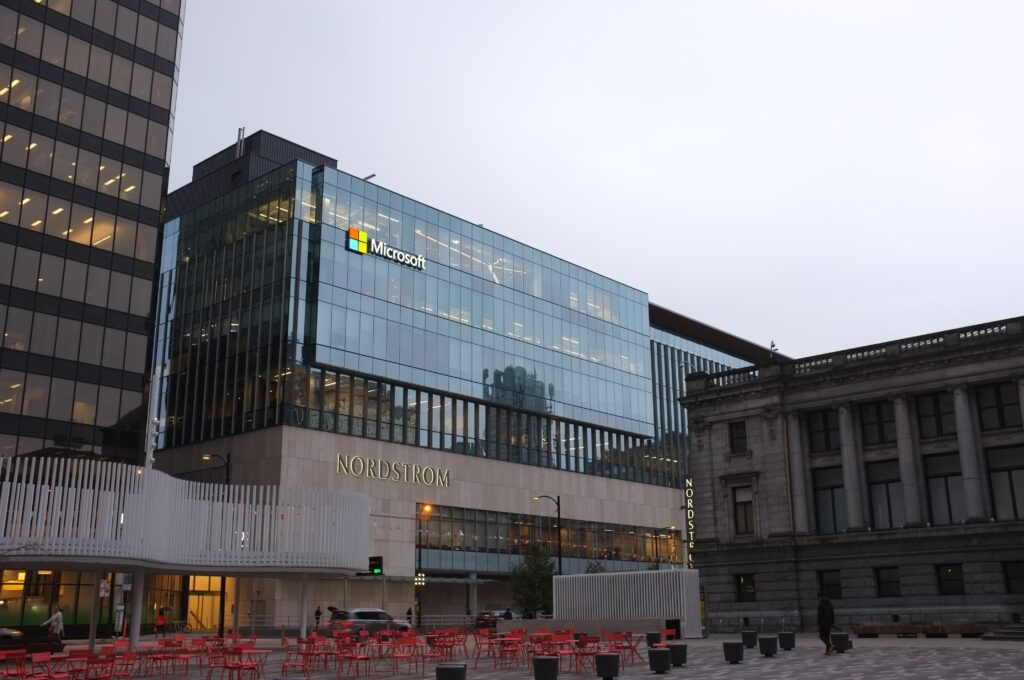The CMA Halts Microsoft’s $68.7 Billion Activision Acquisition Over Cloud Gaming Concerns

Microsoft‘s $68.7 billion deal to acquire Activision has been prevented by the Competition and Markets Authority (CMA) in the UK. The CMA, in March, published its provisional findings on the proposed merger between Microsoft and Activision, stating that it would not have a significant impact on the console market.
So, the regulator narrowed down their scrutiny to specifically focus on the cloud gaming segment of the deal. And the CMA’s final decision came after Microsoft’s proposed solution failed to effectively address the concerns raised by the CMA’s provisional findings, which highlighted the potential impacts of this deal on the cloud gaming sector.
The cloud gaming market in the UK has been rapidly growing, with monthly active users more than tripling from the start of 2021 to the end of 2022. It is estimated to be worth up to £11 billion globally and £1 billion in the UK by 2026, making it a lucrative and competitive industry.
According to CMA, Microsoft already holds a strong position in the cloud gaming services market, accounting for an estimated 60-70% of global cloud gaming services with its Xbox, Windows, Azure, and Xbox Cloud Gaming offerings.
The CMA expressed concerns that the merger would further strengthen Microsoft’s dominance in the market and potentially stifle competition, as it would give Microsoft control over important gaming content such as Call of Duty, Overwatch, and World of Warcraft.

The report also reveals that the proposal submitted by Microsoft to address the concerns raised by the CMA was found to have significant shortcomings. It did not adequately cover different cloud gaming service business models, such as multigame subscription services, and was not open to providers who might wish to offer versions of games on PC operating systems other than Windows.
The CMA determined that accepting Microsoft’s proposed remedy would require ongoing regulatory oversight, as it would replace market forces with mandated regulatory obligations. On the other hand, preventing the merger would allow market forces to continue shaping the development of cloud gaming without regulatory intervention, potentially promoting competition, innovation, and consumer choice.
Martin Coleman, chair of the independent panel of experts conducting the investigation, emphasized the importance of protecting competition in the emerging and exciting cloud gaming market. He stated that Microsoft’s proposed remedy was not effective in addressing the concerns raised by the CMA, and that cloud gaming needs a free, competitive market to drive innovation and choice.

The decision by the CMA to reject the Microsoft-Activision merger is undoubtedly a significant setback for the deal. While it has been approved in several countries including Saudi Arabia, Brazil, Japan, Serbia, Chile, and South Africa, the CMA’s decision may impact the final verdict of the European Commission on this deal.
Moreover, it’s not just the CMA that has shown concerns, the Federal Trade Commission (FTC) has also been a major hurdle, even resorting to legal action in an attempt to block the merger.
Statements from Activision and Microsoft Regarding the Decision
After the press release from the CMA, Bobby Kotick, the CEO of Activision Blizzard, sent an internal message to the team, sharing his views on the decision;
Team,
Today, the Competition and Markets Authority (CMA), a regulatory agency in the UK, decided not to approve our merger with Microsoft. This isn’t the news we wanted – but it is far from the final word on this deal.
Alongside Microsoft, we can and will contest this decision, and we’ve already begun the work to appeal to the UK Competition Appeals Tribunal. We’re confident in our case because the facts are on our side: this deal is good for competition.
The UK hopes to grow its leadership position in technology, and a combined Microsoft-Activision would accomplish exactly that. At a time when the fields of machine learning and artificial intelligence are thriving, we know the UK market would benefit from Microsoft’s bench strength in both domains, as well as our ability to put those technologies to use immediately. By contrast, if the CMA’s decision holds, it would stifle investment, competition, and job creation throughout the UK gaming industry.
This merger is a complex process, and I know I’m not the only one frustrated by the hurdles and delays. We’re accustomed to a company culture that moves quickly to accomplish big goals, so it’s tough when we can’t close things out at our usual energetic pace. We’ll keep pressing our case, because we know that this merger will benefit our employees, the broader UK tech workforce, and players around the world.
I’m going to do everything I personally can to advocate for us and help regulators understand the competitive dynamics in our industry. What gives me confidence is that, whether on our own or united with another company, we are one of the strongest companies in our industry, poised for continued growth, and building on our incredible IP.
I appreciate your continued hard work and focus, and for continuing to connect and engage our players around the world. This is the best time to be in our field, and you all represent the best of our industry. We’ll be sure to keep you updated on next steps as they happen.
Bobby Kotick, CEO Activision Blizzard
Brad Smith, Vice Chair and President of Microsoft, echoed a similar sentiment in his statement, expressing Microsoft’s intention to appeal the decision made by the CMA;
Conclusion
With obstacles mounting, Microsoft is facing challenges in obtaining global approval for the deal. What are your thoughts about CMA’s final decision on the acquisition of Activision by Microsoft? Let’s discuss this in the comment section below.





